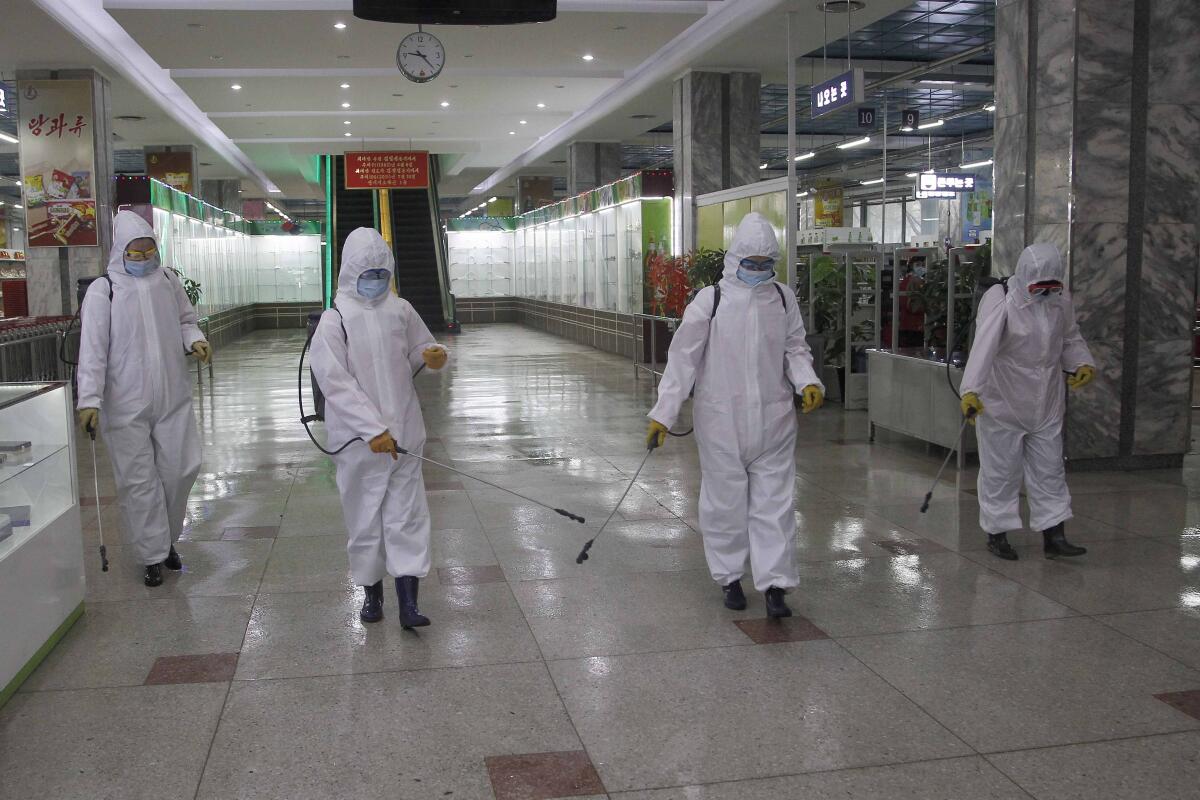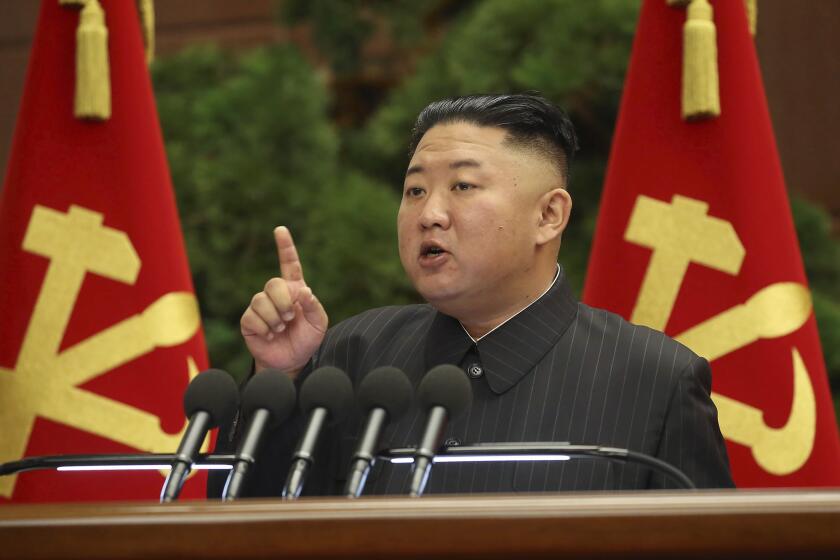WHO starts shipping COVID-19 medical supplies to North Korea

- Share via
SEOUL — The World Health Organization has started shipping COVID-19 medical supplies to North Korea, a possible sign that the country is easing one of the world’s strictest pandemic border closures to receive outside help.
The WHO said in a weekly monitoring report that it started the shipment of essential COVID-19 supplies through the Chinese port of Dalian for “strategic stockpiling and further dispatch” to North Korea.
Edwin Salvador, the agency’s representative to North Korea, said in an email to the Associated Press on Thursday that some items had reached the North Korean port of Nampo after North Korean authorities allowed the WHO and other United Nations agencies to send supplies that had been stuck in Dalian.
“Consequently, we have been able to transport some of our items by ship to Nampo … [including] emergency health kits, medicines and medical supplies that would support essential health services at primary healthcare centers,” Salvador said. “We are informed that WHO items along with supplies sent by other U.N. agencies are currently still under quarantine at the seaport.”
Describing its anti-coronavirus campaign as a matter of “national existence,” North Korea has severely restricted cross-border traffic and trade for the last two years despite the strain on its already-battered economy.
U.N. human rights investigators in August asked Pyongyang to clarify allegations that it had ordered troops to shoot on sight any trespassers who crossed its borders in violation of the closure.
Analysts say the ratcheting up of military might between North and South Korea raises the possibility of misunderstandings that could spiral to dangerous consequences.
While North Korea has yet to report a single case of COVID-19, outside experts widely doubt that it escaped a disease that has touched nearly every other place in the world.
North Korea told the WHO that it had tested 40,700 people for the coronavirus through Sept. 23 and that all the tests were negative. Those tested in the last week included 94 people with influenza-like illnesses or other symptoms and 573 healthcare workers, according to the WHO report.
Experts say an epidemic in North Korea could be devastating, considering its poor healthcare system and chronic lack of medical supplies.
In contrast to its harsh border controls, North Korea has not acted with the same urgency regarding its vaccination drive, which continues to be delayed amid global shortages.
North Korean leader Kim Jong Un berates top officials for coronavirus-prevention failures that have caused an unspecified ‘great crisis.’
Analysts say North Korea could be uneasy about international monitoring requirements that would be attached to the vaccines it receives from the outside world. There is also speculation that leader Kim Jong Un has domestic political motives for tightening the country’s lockdown as he calls for unity and tries to solidify his grip on power while navigating perhaps his toughest moment after nearly a decade of rule.
Salvador said the WHO was continuing to work with North Korean officials on completing the technical requirements for receiving vaccines through the U.N.-backed COVAX distribution program. He said North Korea had developed a national deployment plan to use as reference when it begins its vaccine rollout.
The latest WHO report came weeks after a North Korean ruling party meeting during which Kim ordered officials to wage a tougher anti-coronavirus campaign in “our style” after he turned down some foreign COVID-19 vaccines offered via COVAX.
UNICEF, which procures and delivers vaccines on behalf of COVAX, said last month that North Korea had proposed that its allotment of about 3 million Sinovac shots be sent to severely affected countries instead.
Some analysts say North Korea is angling to receive more effective vaccines amid questions about Sinovac’s efficacy.
More to Read
Sign up for Essential California
The most important California stories and recommendations in your inbox every morning.
You may occasionally receive promotional content from the Los Angeles Times.












